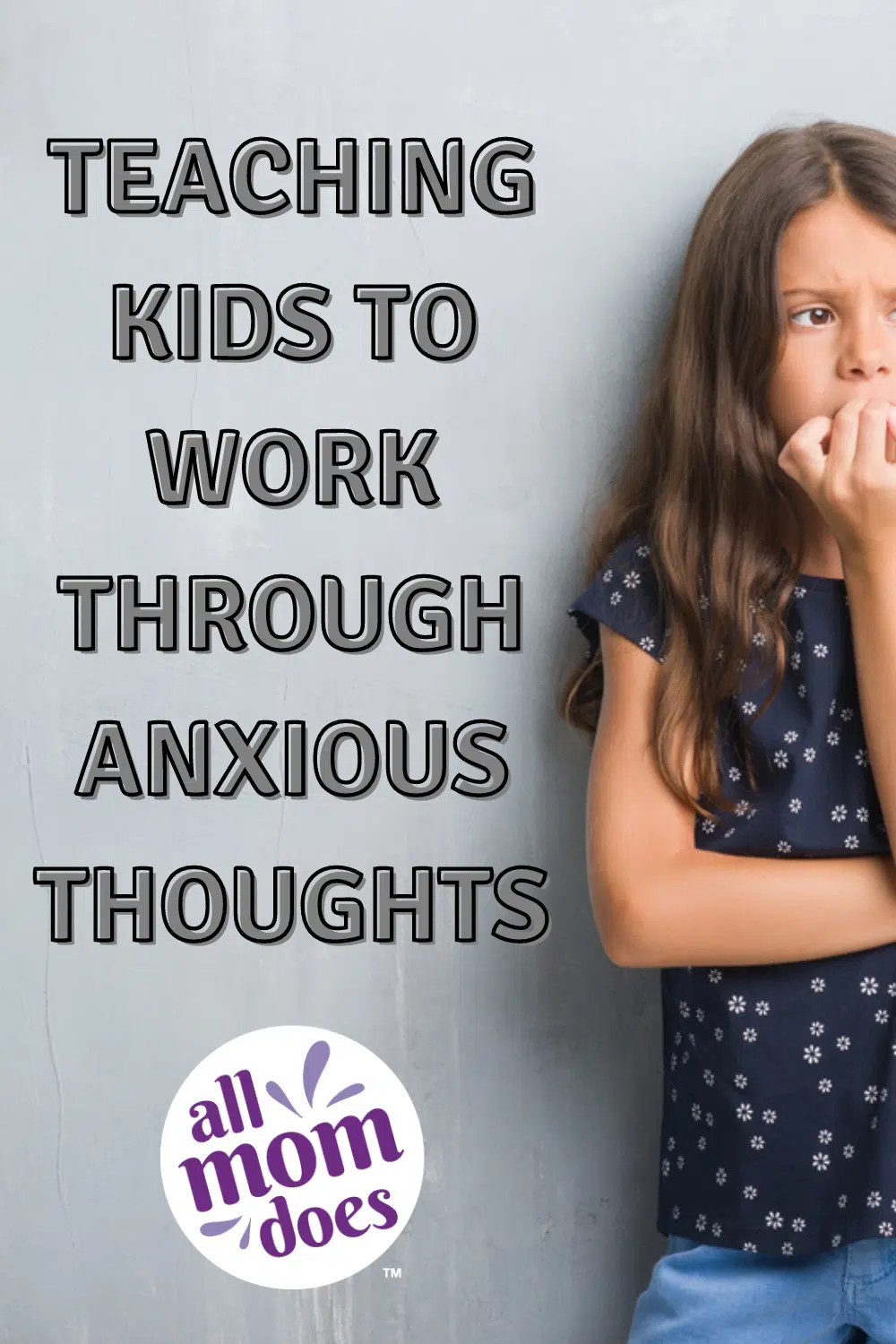One the most difficult parts of parenting is letting our kids struggle, feel disappointment, and experience discomfort. But one of the most rewarding parts of parenting is watching our kids rebound, grow, and develop resilience.
Unfortunately you can’t have one without the other.
It’s easy to lose sight of the endgame when you’re in the thick of day-to-day parenting, but the ultimate truth is this. We’re not raising children. We’re raising eventual adults. That means we need to do as much as we can to teach our kids the things they need to launch into the world. And that involves more than just teaching them how to make their beds and do their laundry; it also involves helping them develop the emotional intelligence and coping skills they’ll need to successfully navigate adulthood.
Now before I continue, let me say that anxiety is a very real thing. Mental health is just a important as physical health. But I think as parents, we shy away from pushing our children in this area because we feel ill-equipped and are afraid of negatively impacting them. However, there’s a difference between experiencing nervousness or anxious thoughts (which our kids need to learn how to work through) and true anxiety (a mental health disorder).
The cause of anxiety is complex. There is a biological/chemical component. But there can also be a behavioral element; that is, having a lack of coping skills (or poor coping skills, such as avoiding triggers altogether to sidestep or eliminate anxious feelings) can actually have a snowball effect and shift someone from struggling with anxious thoughts into full-blown, clinical anxiety.
Simply put, if we fail to help our kids develop effective coping mechanisms for uncomfortable situations, we may be setting them up for a huge struggle once they hit adulthood.
My son started a new extracurricular activity a few weeks ago. After the second day, I could tell something was wrong. He was quiet, subdued, and talked about quitting. And to be honest, he had some pretty valid reasons as to why he didn’t want to continue. But I felt there was something more. So I named it.
“Are you nervous? Is part of it because this is new and you’re afraid how you’re going to do? Do you think you’re having a little bit of anxiety over the fear the unknown?”
Begrudgingly, he agreed. And while I know that wasn’t the whole of his reasons for wanting to quit, it was the source of most of his discomfort.
And so we talked about it. I left the decision up to him. But I also told him that he needs to learn how to deal with these uncomfortable feelings now, because he’s going to be experiencing them all his life and the more he gives in to anxious thoughts, the harder it will be to cope with them in the future.
We ended the conversation with this: “Let’s say you go through the whole season and hate every second of it – but you still finish. Or you quit today and never have to deal with it again. Which decision do you think you’d feel better about once the season is over?”
We talked through it. No pressure. No judgment. Just questions and conversations and me sharing my own experience with chronic overthinking, an anxious personality, and my recent experience with true anxiety that affected my daily well-being.
And I was so incredibly proud of him when he chose to stick it out despite the discomfort.
After that we made a plan to make sure his physical needs were met so they didn’t exacerbate his mental health, and we made a plan for how to cope when things felt uncomfortable emotionally. The following day was better, as was the day after that. And now it’s a non-issue because this activity isn’t so new and anxiety-inducing. Some moments are frustrating for him but they’re manageable. And what I really love is that now that he successfully faced his anxious thoughts in this one particular circumstance, we can point back to it to encourage future successes. “Remember that one time when you were super nervous? That feeling was temporary and subsided once you pushed through. The anxious feelings will go away if you quit, but they’ll also go away if you carry on. I bet you can do that again!”
Now, please hear me. I’m not saying no child should ever quit an activity or that some kids don’t struggle with true anxiety. Of course some should and of course some do. But if you avoid letting your child experience normal, uncomfortable feelings simply because you’re not sure how to help your child, do the hard thing and help them learn coping mechanisms. Here’s how you can walk them through anxious thoughts:
1. Help them recognize what anxiety feels like in their body. Often kids (and adults!) don’t realize that they’re experiencing anxiety. It’s usually an underlying cause that is masked by more overt symptoms. Help your child identify the emotions beneath the feelings in easy reach. Anxiety can feel like anger, irritability, or feeling fidgety. Or it might feel like something different in your child!
2. Help them understand why it’s important to learn to work through anxious thoughts. Anxiety-inducing situations occur throughout our lives. Starting a new job. Starting a new school. Trying a new hobby with new people. If they don’t learn how to deal with it now, it could limit their life and experiences in the future.
3. Teach them coping skills. What steps can they take to help them feel better? Coping successfully doesn’t mean that the feelings are completely gone, but that they don’t affect the quality of your daily life.
4. Normalize nervous feelings, and teach them that they’re temporary. Everyone experiences nervousness. It’s normal. And anxious thoughts do go away as you tackle the trigger. If they persist or are truly mood- or life-altering, that may be indicative of clinical anxiety which may require professional intervention.
5. Resist your motherly instinct to stop the struggle. No parent wants to see their child hurting. Every parent wants to make it better. But your child needs to experience discomfort in order to develop healthy coping mechanisms and develop emotional maturity. So resist the urge to step in and save them. {The caveat, of course, is if your child is experiencing true anxiety or another mental health disorder. In that case you should absolutely intervene and work with medical and mental health professionals to diagnose and treat it. If you aren’t sure whether your child is struggling with typical nervousness or true anxiety, have them assessed by their doctor.}
We see the same modeled by our Heavenly father. Yes, sometimes He protects or delivers us from difficult circumstances. But more often He walks with us through the fire to help us develop character.
When you go through deep waters, I will be with you. When you go through rivers of difficulty, you will not drown. When you walk through the fire of oppression, you will not be burned up; the flames will not consume you. -Isaiah 43:2
Consider it pure joy, my brothers and sisters, whenever you face trials of many kinds, because you know that the testing of your faith produces perseverance. Let perseverance finish its work so that you may be mature and complete, not lacking anything. -James 1:2-4
He doesn’t abandon us, forget us, or throw us to the wolves to fend for ourselves. We walk confidently knowing He goes with us, just as your child will know you’re always in their corner. It doesn’t take the trigger away, but gives them that extra boost of assurance that – with your help and coaching – they’ll make it through.
How do you help your child work through discomfort, nervousness, and anxious thoughts?


















